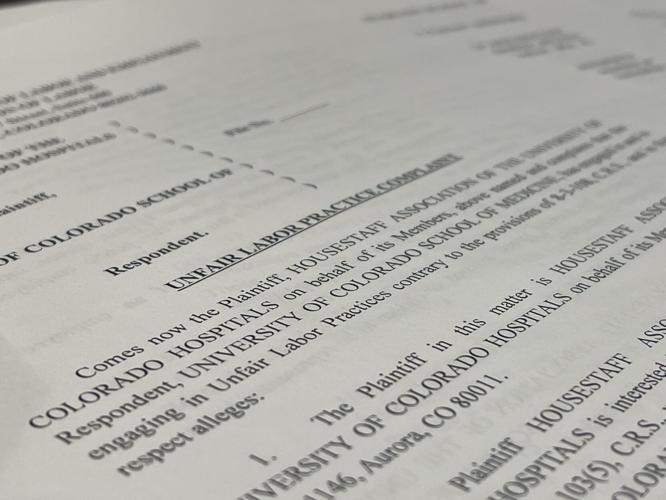Medical residents seeking to unionize accuse CU School of Medicine of retaliation
Medical residents seeking to unionize accused officials with the University of Colorado School of Medicine of retaliation in a complaint filed Wednesday.
The Housestaff Association of the University of Colorado Hospitals (HSA) filed the complaint with the state Department of Labor and Employment.
“These actions aren’t coincidental,” Simone Raiter, HSA co-president, said in a statement. “They are calculated attempts to destabilize HSA and prevent the next generation of housestaff from organizing for the protections, respect, and conditions we deserve.”
The complaint cites several examples of retaliation include abandoning union negotiations and removing HSA’s due collection system, which has been in place for decades, according to the complaint.
HSA claims these actions have directly undermined their ability to represent more than 1,300 medical residents and fellows across CU’s affiliated hospitals.
“CU should be a leader in collaboration, not retaliation,” Carlos Estevez-Celi, HSA co-president, said in a statement. “Especially when that retaliation is in an effort to hurt overworked and underpaid doctors who have dedicated their lives to caring for Coloradans.
“We care about our community — our colleagues and the patients we serve — but it doesn’t seem like CU cares about us.”
While the title “doctor” may invoke associations of prestige and wealth, first-year residents — those just starting their career — at the University of Colorado School of Medicine make about $85,000 a year, Estevez-Celi told The Denver Gazette.
But that’s after a $10,000 pay increase.
And while the average salary in Denver is $83,000 — according to Payscale —the $85,000 residents earn is quickly whittled away when considering they work 80-hour weeks.
That equates to about $20 an hour, which hovers just above Denver’s minimum wage — $18.81.
Founded in 1969, the HSA is a labor organization representing roughly 1,300 resident doctors and fellows across the University of Colorado hospitals and its affiliates, according to the organization. These resident doctors and fellows, Estevez-Celi said, work — in addition to the university hospital — at Rose Hospital, Denver Health and Children’s Hospital of Colorado.
The group announced its intention to unionize in February.
UC School of Medicine officials said they remain “singularly focused on helping them become exceptional caregivers.”
“The school’s commitment to creating an outstanding training and working environment for our residents will never waver,” Mark Couch, a university spokesperson, said in an email to The Denver Gazette.
Couch said the dues collection was “a necessary legal change.” But he did not explain why the change became necessary this year.
Additionally, Couch did not say why the collective bargaining fell apart, only that — despite “good faith efforts” — an agreement could not be reached.






